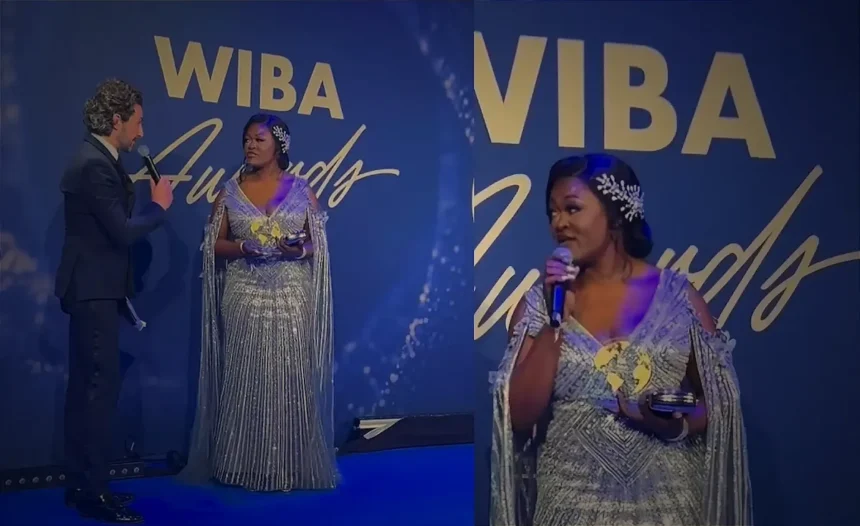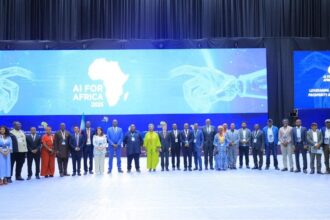Alice Mukendi, a respected African American media personality, recently shared a heartbreaking story on Instagram about her experience at the World Influencers and Bloggers Awards (WIBA) in France, an event that should have been celebratory but instead left her feeling invisible and disrespected.
Alice made the difficult decision to miss her own child’s graduation ceremony just to attend the WIBA Awards, believing she would be publicly honored alongside other awardees. Instead, she spent the entire evening waiting in vain as name after name was called, except hers.
“I sat there the whole night, watching everyone else walk up to the stage,” Alice recounted in her emotional Instagram post. “No explanation, no acknowledgment. Just silence.”
When the event ended and the crowd dispersed, Alice, still holding her unopened award envelope, approached the organizers, demanding answers. Their response? Confusion and indifference. Only after the audience had left did they finally hand her the award.
In a moment that should have been triumphant, Alice was given a mic in a vacant venue to deliver her acceptance speech. Her words cut deep:
“Thank you so much, WIBA, for embarrassing me.”
The irony was crushing. An award meant to honor her achievements instead highlighted the disrespect she endured.
The Bigger Picture: Black Women & Systemic Disrespect
Alice’s experience isn’t an isolated incident. Many Black women, especially those in media and entertainment, have faced similar dismissals in international spaces. Whether it’s being overlooked, tokenized, or outright ignored, the pattern is frustratingly familiar.
- Viola Davis once spoke about being invited to events only to be treated as an afterthought.
- Lupita Nyong’o has addressed the subtle (and not-so-subtle) ways Black women are sidelined in global award spaces.
Alice’s story struck a chord because it reflects a broader issue: the lack of consideration for Black women’s time, sacrifices, and dignity, even in spaces that claim to celebrate them.
Fans and fellow creators flooded Alice’s comments with outrage and solidarity:
- “You deserved so much better. This was disrespectful on every level.”
- “The fact that they only acknowledged you AFTER everyone left says everything.”
- “This is why we need our own platforms. They’ll invite us but never truly honor us.”
Some even called for accountability from WIBA, questioning whether the oversight was intentional or sheer negligence.
A Lesson in Self-Worth
Alice’s ordeal serves as a painful reminder: recognition shouldn’t come at the cost of self-respect.
“I missed my child’s graduation for this,” she wrote. “Never again.”
At the time of writing, the organizers of WIBA (World Influencers and Bloggers Awards) have remained silent regarding Mukendi’s claims, offering no public explanation about the circumstances of her invitation or the alleged miscommunication.
This lack of response has only fueled further speculation and disappointment among her supporters. Meanwhile, Mukendi remains in France, where she has been openly documenting her experience on social media, keeping her followers updated while demanding transparency and accountability from the event organizers.
Her story has resonated with many, a stark reminder of the pitfalls that come with the pursuit of recognition in the fast-moving, often opaque world of influencer culture. While awards and accolades can open doors and elevate careers, Mukendi’s experience highlights the importance of due diligence.
For professionals navigating these spaces, her ordeal underscores the need to question, verify, and, when necessary, speak up, because visibility shouldn’t come at the cost of credibility.
Her story isn’t just about an award; it’s about the value of Black women’s presence, time, and contributions. And until institutions like WIBA take that seriously, many will continue to ask: Are these awards really for us, or just performative inclusivity?









